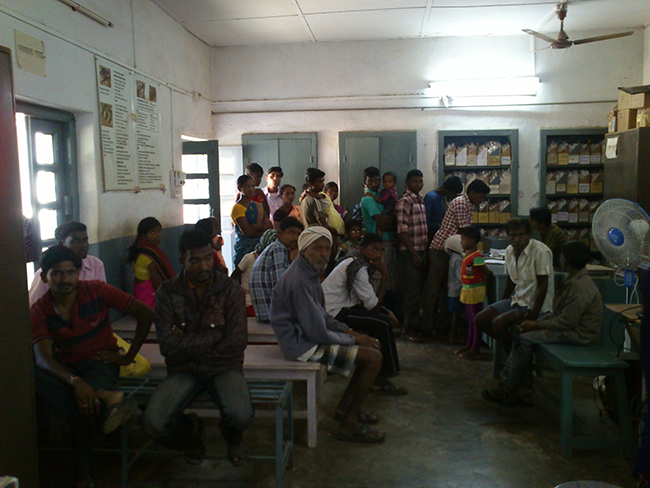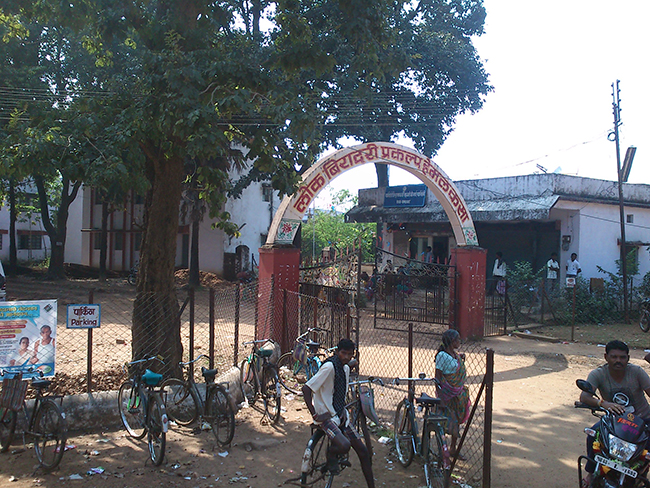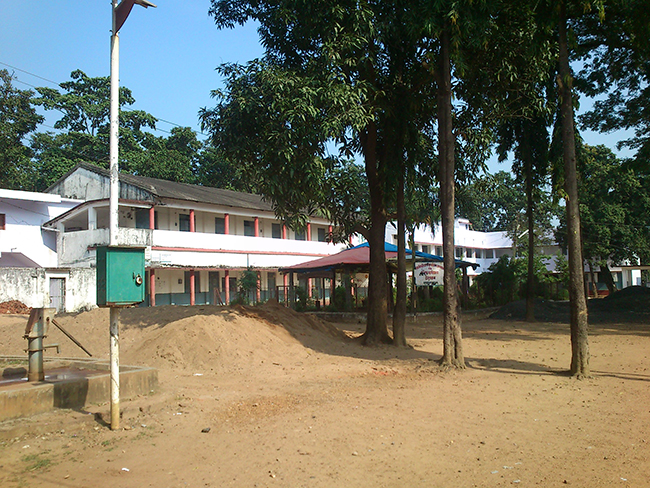
Dr. Prakash Amte's Lok Biradari - Brotherhood of People
We encourage Thoughtworkers to go on their personal journeys, follow their passions and learn and contribute to social and economic justice. In this experience report, Pankaj Kanchankar from Pune, reminisces on his recent visit to Dr. Prakash Amte’s Lok Biradari - a community that includes a hospital, an animal orphanage, a school for adivasi children and a vocational and livelihood skills training center, all within one campus. He also explores how Thoughtworks and others can potentially help support this one-of-its-kind community.
I visited Dr. Prakash Amte's hospital for adivasis - Lok Biradari - at Hemalkasa, Gadchiroli on Nov 8, 2013. It was a very interesting and fulfilling visit from a personal journey perspective and also towards exploring ways in which Thoughtworks can potentially help. Here are my notes from the visit to this beacon of hope.
About Lok Biradari Prakalpa
Lok Biradari Prakalpawas, started by Dr. Prakash Amte in 1973, is in the small village of Hemalkasa in Gadchiroli District of Maharashtra, India. Back then, there were no paved roads and the nearest town of Alapalli is 70 kms away (required a day of walk / trek through dense forest). Baba Amte (a social activist and father of Dr. Prakash Amte) visited Hemalkasa and was appalled at the living-conditions of the adivasi people (Madia Gond) out there. He found abject poverty, widespread malnutrition, and high levels of exploitation by other people. Observing the complete absence of state and its attention, he laid the foundation of Lok Biradari and his son Dr. Prakash Amte and his wife Dr. Mandakini Amte took it upon themselves to set up a hospital to address the health-care needs of these people, in this difficult-to-access region.

Projects at Lok Biradari Prakalpa
Today the Lok Biradari Prakalpa runs four primary programs:
- A hospital for the adivasis and villagers
- Amte's Animal Ark - an animal orphanage
- A school for adivasi and village children
- A vocational and livelihood skills training
The Hospital
When Dr. Prakash Amte and his wife Dr. Mandakini Amte, started the hospital, they faced lot of challenges - they didn’t know the language, adivasis had lots of superstitions and didn’t trust them initially and there was a lack of resources (such as motorable roads and availability of electricity in this inaccessible region) to succeed. To gain the trust of adivasis, Dr. Prakash Amte and Dr. Mandakini Amte first learnt their local language. In the initial days, they treated patients and performed basic operations in the open to gain the people’s trust.

Today, the hospital serves around 1000 villages (adivasi and non-adivasis) in a 250 km radius. It serves close to 45,000 patients in a year, and receives, on average, 130 OPD (out patient department) visits every day, out of which, almost 80% are repeat cases. It has a 50 bed in-patient capacity for patients who require longer treatment or who need time to understand frequency of dosage. The hospital does not charge for doctor consultation or procedures, lab tests or medications. The only time a patient needs to pay is when an injection is given, that too, is just Rs 10/-. The hospital has a decent laboratory with an x-ray, sonography and basic blood and urine analysis equipments. There is a dental wing also, which is taken care of by Dr. Mayur, who is a volunteer.
Now-a-days, his son, Dr. Digant, and daughter-in-law, Dr. Anagha, run the hospital, keeping the beacon of hope alive, which Dr. Prakash Amte lit four decades ago.
Amte's Animal Ark
Dr. Prakash Amte also loves animals and has provided shelter to a lot of wild animals which were orphaned due to hunting by the adivasis. For example, a cheetah cub was brought to him after its parents were hunted for meat and skin. Dr. Amte is loved by those animals and you can see him playing with them. His children, Dr. Digant and Aniket, grew up with these wild animals and have a special bond with them.
School for Adivasis and Villagers
When Dr. Amte realized that some of the issues he was dealing with were more social in nature and deep rooted in the superstitions of the adivasis, he decided to start a school. He went from village to village to persuade parents to send their children to school, so with a batch of 25 students, the Ashram Shala at Lok Biradari was started. Today, it has around 650 students, right from primary to 12th grade.

This school is indeed different. As most of the students are adivasi, Marathi language (the local widely-spoken language of the State of Maharashtra) is alien to them. The adivasis live in forests, under trees and amongst animals, thus keeping such students inside a classroom was an ordeal. In order to make the transition easier, customized text-books were created locally, in tribal Madia language, to teach in first grade, and gradually move to Marathi text by third grade. Also, the classes are held not just in the classroom but also at a river bank, under trees, and in the Animal Ark area to give the students a feel of home.
Students from this school have done well in sports as well and have represented the State of Maharashtra in national level sporting events. Some of the students have come back as faculty members and a few of them have completed their medical education as well.
Vocational and Livelihood Training
An extension of the school was to provide vocational training and livelihood skills to the students and villagers who needed it. Some of the students, who could not pursue higher studies or had to drop out to support their families, are provided skills training in Dairy, Poultry and Bamboo craft. Adivasis used to believe that cows and buffalo's milk was sacred, and meant only for the calf and should not be drank or sold. At Lok Biradari, a dairy farm was setup to show that one cow can produce close to 15-20 liters of milk, sufficient for the calf and also for the farmer. The dairy farm is used to train the students and also provide cows, at a loan, to students who want to take up dairy farming.
Trainings on bamboo craft is conducted to allow students to preserve their own craft, and also showcase how it can be used as a livelihood. Lok Biradari acts as a guaranteed buyer for these crafts and sells them at their centre and various exhibitions.
Support Needed
The hospital is in need of a good Medical Record Management System (EMR) that could be integrated with its Lab. An EMR, with elaborate reporting system will reduce the dependence on paper and excel sheets. This would help hospital staff analyse the last 10 years of patient data, and identify any patterns and take preventive measures.
The school has a computer lab, with very basic internet connectivity. This constraints students from exploring all the content which is readily available online. It will be of immense help to students if lot of this content can be made available offline, like - the Khan academy videos, wikipedia for children, science experiment videos, etc...
Key Take Aways
This has been a life changing experience for me and made me realise that problems of healthcare, education and social injustice are intertwined with each other and need a holistic, multi-pronged approach, as showcased at Lok Biradari. There are strong-willed people out here, but they do need help to achieve their objectives to make life better for Madia Gond adivasis, while operating in such a constrained environment.
If you are interested in learning more or would like to contribute to Lok Biradari or donate items such as blankets, clothes or raincoats, please get in touch.
Mr. Aniket Amte – +91. 9423208802
Dr. Digant Amte – +91. 9421782993
E-mail : aniketamte@gmail.com
Disclaimer: The statements and opinions expressed in this article are those of the author(s) and do not necessarily reflect the positions of Thoughtworks.














